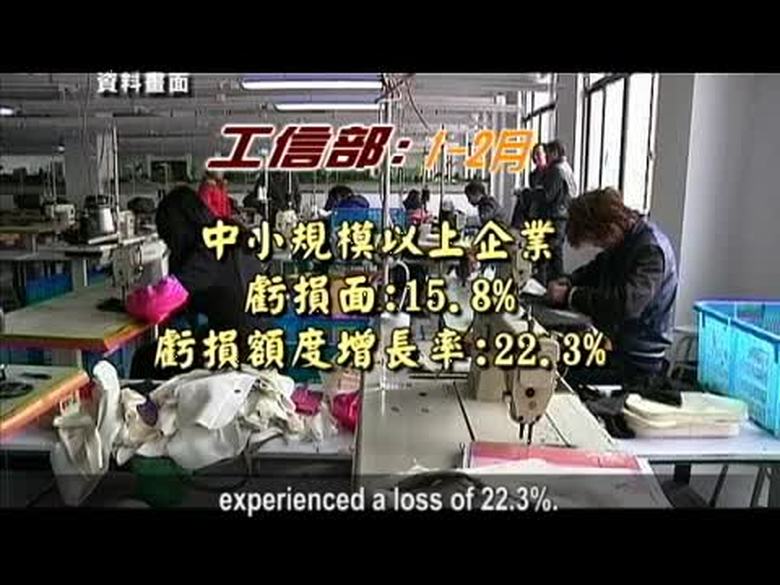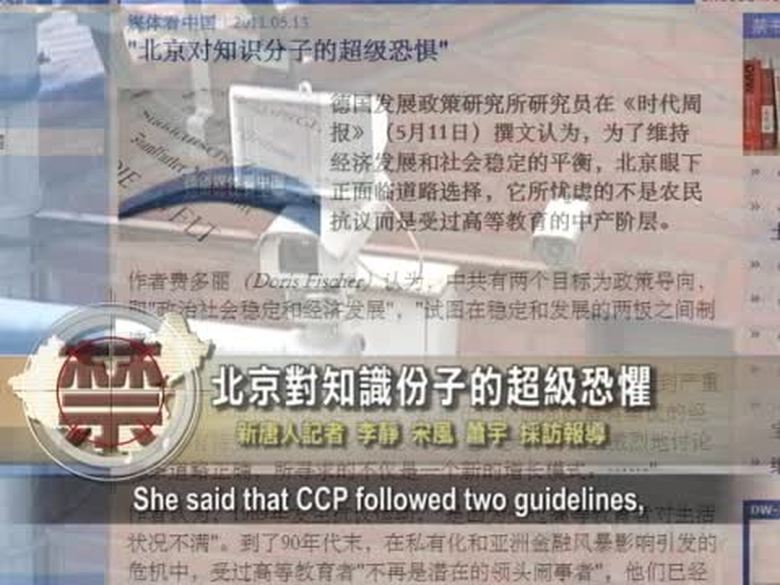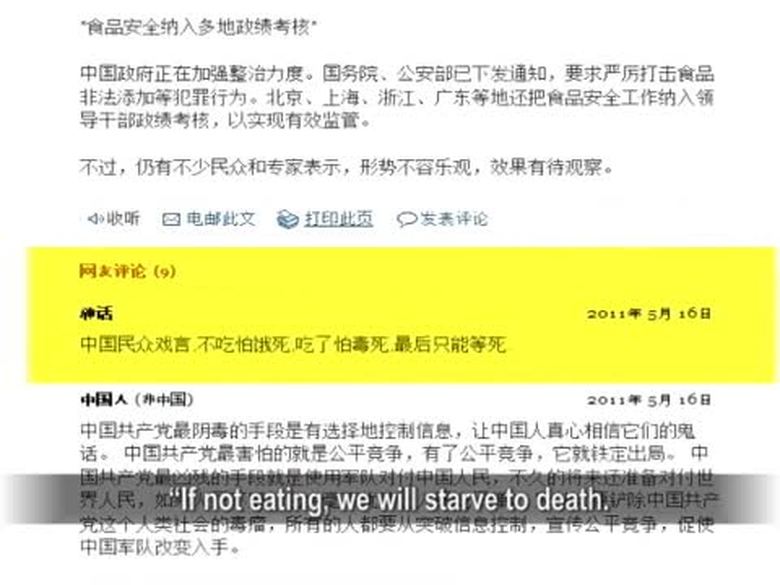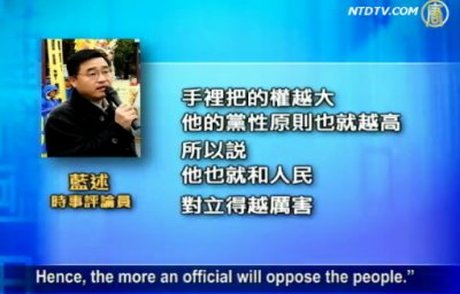【新唐人2011年5月17日訊】中國有著悠久的歷史文化,而中國人常以“聰明”而自豪。但最近有西方輿論認為,中國在走向低智商社會,原因是中國人讀書少。不過中國的學者指出,是因為中共當局的禁錮,導致中國沒有好書可看。
美國《華爾街日報》日前發表的文章《中國在走向低智商社會嗎?》提到,雖然中國人作為個體而言大都自認為智商很高,但中國的社會集體智商狀況卻非常令人擔憂。
文章強調,現在中國人的讀書習慣越來越差,對真正的知識和真理缺乏追求,而是更加趨於實用。文章認為,如果一個民族失去了讀書的耐心,很難想像還會有追求更高境界的動力。
原山東大學教授、經濟資訊管理系主任孫文廣向《新唐人》表示,中國人現在不愛讀書,原因是中國現在的書不好看。
孫文廣:“中國大陸所有的出版局都是國有的,出版一本書經過上頭的嚴密的審查,在這樣一種監控條件下,出版社當然就萎縮了、單一了。一元化看多了就煩了,不想去看了,這樣的話,讀書的就少了,影響人的智商了,智商下降,就變成愚昧。這是一種愚民政策的結果。”
孫文廣曾在香港出版《百年禍國》等4本書,因內容敏感遭到大陸當局的封殺。而中國著名作家廖亦武則自認是出版“殺手”。他的作品不僅在國內被禁,現在甚至被告知不能在海外發表作品。
廖亦武撰寫的《中國底層訪談錄》採訪了300多名底層受訪者的人生經歷,牽動人心,被北京政府禁發之後,它的盜版一直走俏中國大陸地攤,至少有六、七個版本流通在社會上。
原《畢節日報》記者李元龍認為,當局害怕人們知道真相,所以嚴格控制書本的發行和內容。
李元龍:“就是怕人家知道多的資訊,知道它不願意讓別人知道的資訊以後,對它不利。凡是搞陰謀詭計,靠陰謀手段來維持統治的獨裁政府,它就怕人們看到其他,與它所謂的主旋律以及黨報黨刊內容不一樣的東西。
中共當局一方面嚴密控製出版,另一方面對黨報黨刊的發行訂閱,每年都要求全國各地作為政治任務必須完成。
孫文廣:“以前有一句話,就是統一思想。把大家的思想統一在中共當局的意識形態下面,哪個國家是帝國主義,大家就仇恨它;它說,我們自己是多麼偉大,大家也相信。這樣天長日久,就產生一種愚昧。愚昧的結果呢,就是社會放慢了前進的腳步,就會落後。”
據了解,世界上最愛讀書的國家之一以色列,人均每年讀書64本,在百年來的諾貝爾獎獲獎者中,猶太人就佔了近20%。另外一個國家匈牙利,平均每人每年購書20本,諾貝爾獎得主多達14位。相比之下,中國人每人每年讀書還不到5本。
新唐人記者李靜、李謙、蕭宇採訪報導。
Is China A Low IQ Society?
As one of the world's four ancient civilizations,
China has a long history of culture,
and Chinese people are proud of their intelligence.
But recently, some Western media think China
is moving toward a low-IQ society,
because the Chinese people read less.
Scholars point out, however, that this is because
there are no good books in China to read
due to the Chinese regime』s control on publications.
US Wall Street Journal recently published an article
『Will China Go to A Low IQ Society? 『 It mentions
that many Chinese have high IQs as individuals,
but the collective IQ of Chinese people is worrying.
The article emphasized that the reading habits
of Chinese people are getting worse.
They lack a pursuit of knowledge and truth,
but have become more practical. The article said
that if a nation loses patience to read,
it is hard to imagine that they will have
any motivation to pursue higher realms.
Former Shangdong University professor
Sung Wenguan told NTD that the Chinese
do not like to read as the books are not interesting.
Sung Wengguang: “All publishers in China
are state-owned. Each book goes through
a strict review process before it is published.
Under such a situation, publishers shrink for sure.
People don』t want to read books with the same tone,
therefore less people want to read,
IQ declines, and people become ignorant.
This is a result of obscurantism."
Sun Wenguang published four books in Hong Kong,
including 『Destroy the Country for 100 Years.』
Because of sensitive content, the books are banned
by mainland authorities. Famous Chinese writer
Liao Yiwu calls himself a “killer of publishers.”
His work is not only banned in China,
but he was also told not to publish anything abroad.
Liao's 『Interview with China's Bottom Classes』
is about the life experiences of more than 300 people
at the bottom of the social class.
After it was forbidden by the Beijing government,
it became very popular at small stands
with six or seven different versions of the book sold.
Former Bijie Daily reporter Li Yunlong
thinks that authorities are afraid of people
knowing the truth, so they strictly control
the publication and contents.
Li Yunlong: "They are in fear of people
knowing more information, and accessing things
that the regime believes are negative.
Totalitarian governments rely on tricks
and conspiracy to maintain their rule.
They are afraid of people seeing other information
different from its so-called “main theme”
on the party newspapers and journals.”
On one hand, the Chinese Communist Party (CCP)
authorities tightly control publications;
on the other hand, they require people to subscribe
to party newspapers and journals as a political task.
"In the past there was a saying of unified thinking,
which means to unify everyone's thinking
following the ideology of the Chinese authorities.
People hate imperialists and think how great we are.
Over time, it leads to a childish ignorance,
Which drags us down."
It is said that people in Israel are among those
who like to read books most, with an average
of 64 books read per person each year.
In the past hundred years, Jewish people
accounted for nearly 20% of Nobel Prize winners.
The average Hungarian reads 20 books per year,
and Hungarians have as many as
14 Nobel Prize winners.
In contrast, Chinese people』s average is less than
five books per person per year.
NTD reporters Li Jing, Li Qian and Xiao Yu
























